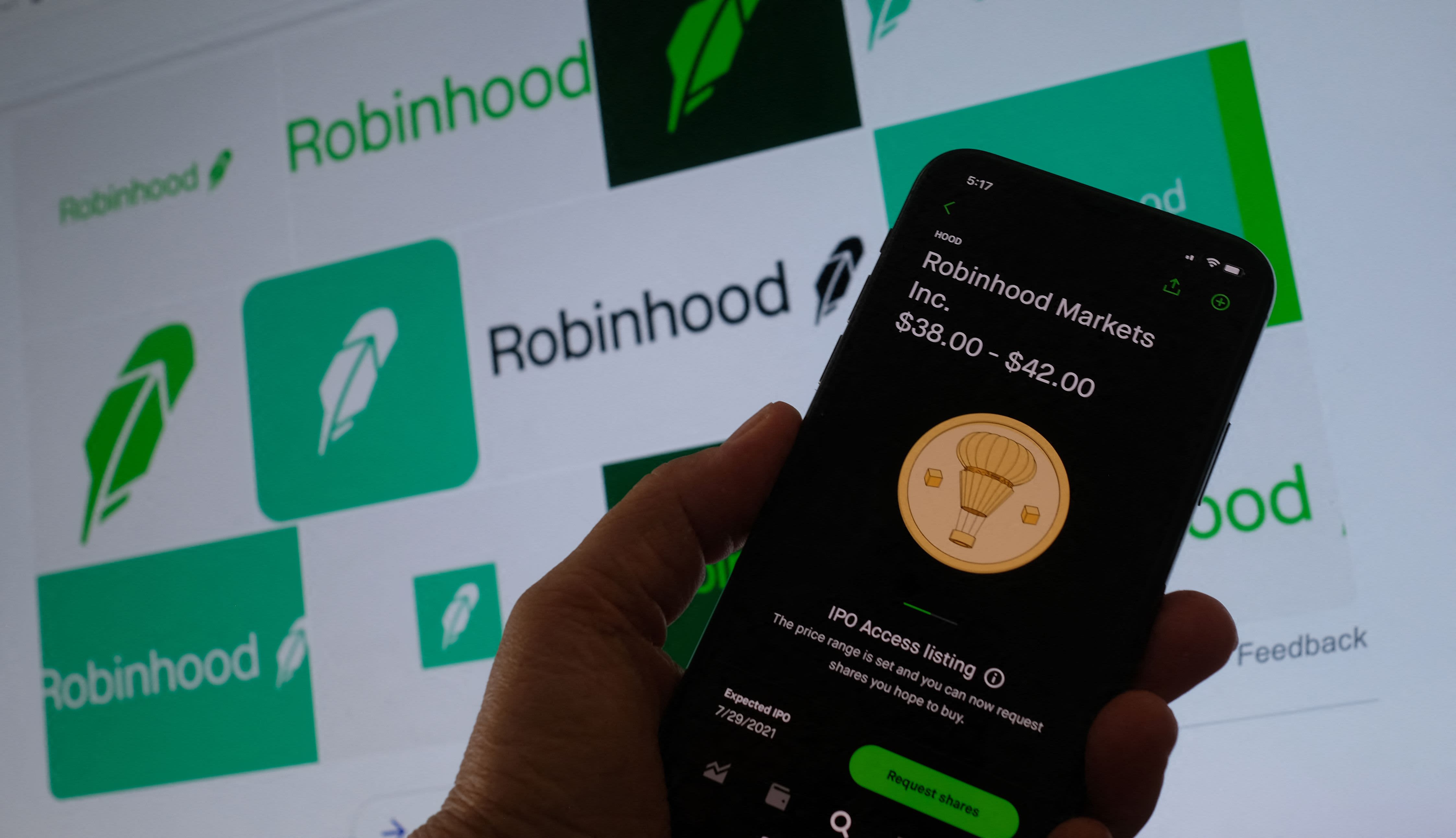
Robinhood debuted Thursday on the Nasdaq, listing at $38 a share.
Here's what experts think of the company and the stock.
Steve Weiss, chief investment officer and managing partner at Short Hills Capital, debunks some of the myths he sees around the company.
"No. 1, they're not disruptors. They're going into a business and they're offering prices which are free, which many, many others are doing. So, I don't think they're a disruptor. No. 2, they haven't democratized investing. That's been democratized a long, long time ago and they're talking out of two sides of their mouth because they are going to own I believe about 16% of the company, but control over 60% of the vote. So, let's go where their intentions are, which is not one shareholder, one vote. That's really poor governance. Now, I don't think [CEO] Vlad [Tenev] – he's done a great job taking it to this point, but thank god for the pandemic for them because that fueled the growth. They were bumping along, they were growing, but you cannot value this company as a disruptor when it's not. You've got to value it comparing it to the others that offer a much broader line of services."
Anastasia Amoroso, chief investment strategist at iCapital Network, said the timing of Robinhood's IPO looks favorable.
"This is a red-hot environment for IPOs. … The valuation of this particular IPO is not that out of whack with the reality that we see for some of the fintech names. I know that you can compare it to Schwab and some of the other ones, but the reality is the growth trajectory of a name like this is far, far greater than what we've seen for some of the other names. So, I'll give you an example. The average IPO last year at the time of pricing was 2½ times the price that it had in the last prior round, 2½ times. And this IPO was priced at about 2.7 times. So, it's a little bit on the expensive side, but it's actually not that expensive. And if you look at it in terms of the multiple of revenues on this particular company, it's about 25 times, which, once again, it's a little bit high, but given how much interest there is in fintech names, it doesn't surprise me."
Jim Cramer, host of CNBC's "Mad Money," said the company has to contend with its fair share of problems.
"I think we all know that they had problems. They have to grow into that. Look, I'm not going to defend a lot of the things. I mean, there's a controversies page in the Atlantic Equities piece that is … devastating if you read it. You would never own the stock. But … I guess what I'm saying is that we may not think that the app disrupted things, but there are a lot of people in this industry who wish they had those 22 million [users]."
Ritholtz Wealth Management CEO Josh Brown would not buy it here, though is watching it closely.
"I'm personally not interested in owning it, but I'm fascinated by the story and everything that they've built. I think a lot of this really started out as regulatory arbitrage. The neat trick was getting big enough fast enough before anybody knew what was happening. And they just paid a big fine related to some of that regulatory arbitrage, so, maybe they'll clean up their act. But in the end, this is not an investing business. This is online gambling. If I wanted to invest in that, I'd probably be more interested in DraftKings. I don't really see this as being vastly superior in any way to any of the other publicly traded brokerages. In fact, it's inferior in many ways. The median Robinhood customer has a $240 balance in their account. The average is about $5,000. You compare that metric with a Charles Schwab and you would just say, 'I want to own Schwab.' This is going to have an outrageous valuation because of how fast it's growing, and that's undeniable. You can't take that away from them. But what are they really growing? And if you take out payment for order flow, if you say, 'Alright, 75% of this company's revenue is payment for order flow,' which is basically allowing one group of investors to take advantage of another group of investors, if that's the whole business, I'm not sure that that's the kind of thing that I want to personally invest in. I also would note that … a lot of the growth in revenue over the last year has come from things like dogecoin. So, you could make the case that there's going to be more of that in the future and that the margins for crypto trading will stay high. I doubt it."
"and" - Google News
July 30, 2021 at 04:32AM
https://ift.tt/3fbZuMH
Robinhood debuts on Nasdaq – Jim Cramer and others share their take - CNBC
"and" - Google News
https://ift.tt/35sHtDV
https://ift.tt/2ycZSIP
And
Bagikan Berita Ini














0 Response to "Robinhood debuts on Nasdaq – Jim Cramer and others share their take - CNBC"
Post a Comment